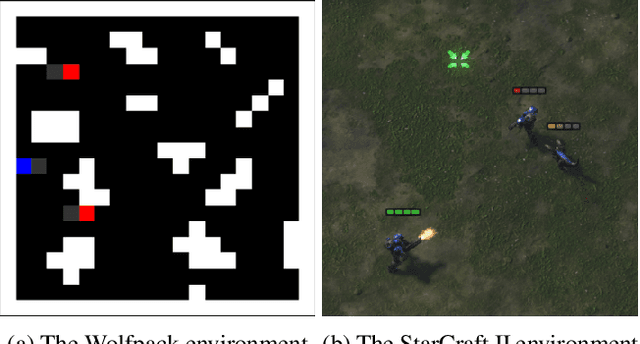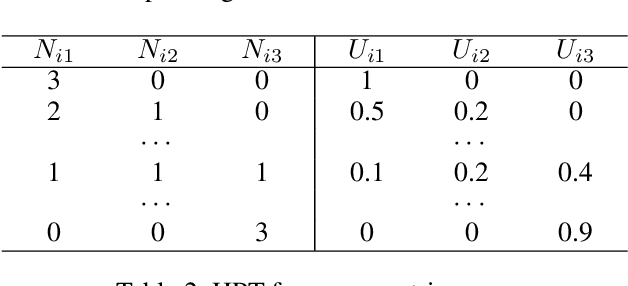Yushan Zhou
Evolutionary Game-Theoretical Analysis for General Multiplayer Asymmetric Games
Jun 22, 2022



Abstract:Evolutionary game theory has been a successful tool to combine classical game theory with learning-dynamical descriptions in multiagent systems. Provided some symmetric structures of interacting players, many studies have been focused on using a simplified heuristic payoff table as input to analyse the dynamics of interactions. Nevertheless, even for the state-of-the-art method, there are two limits. First, there is inaccuracy when analysing the simplified payoff table. Second, no existing work is able to deal with 2-population multiplayer asymmetric games. In this paper, we fill the gap between heuristic payoff table and dynamic analysis without any inaccuracy. In addition, we propose a general framework for $m$ versus $n$ 2-population multiplayer asymmetric games. Then, we compare our method with the state-of-the-art in some classic games. Finally, to illustrate our method, we perform empirical game-theoretical analysis on Wolfpack as well as StarCraft II, both of which involve complex multiagent interactions.
 Add to Chrome
Add to Chrome Add to Firefox
Add to Firefox Add to Edge
Add to Edge